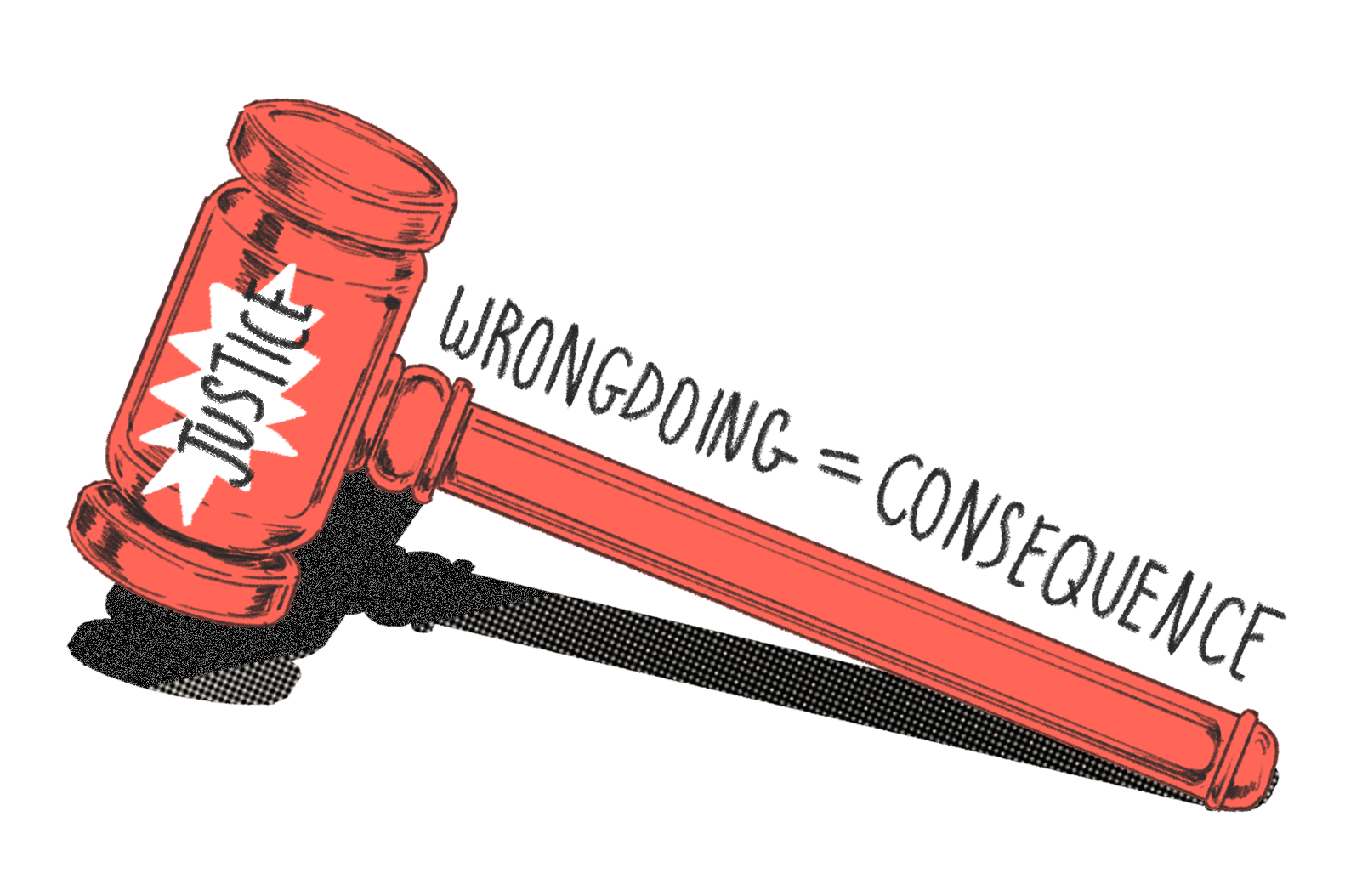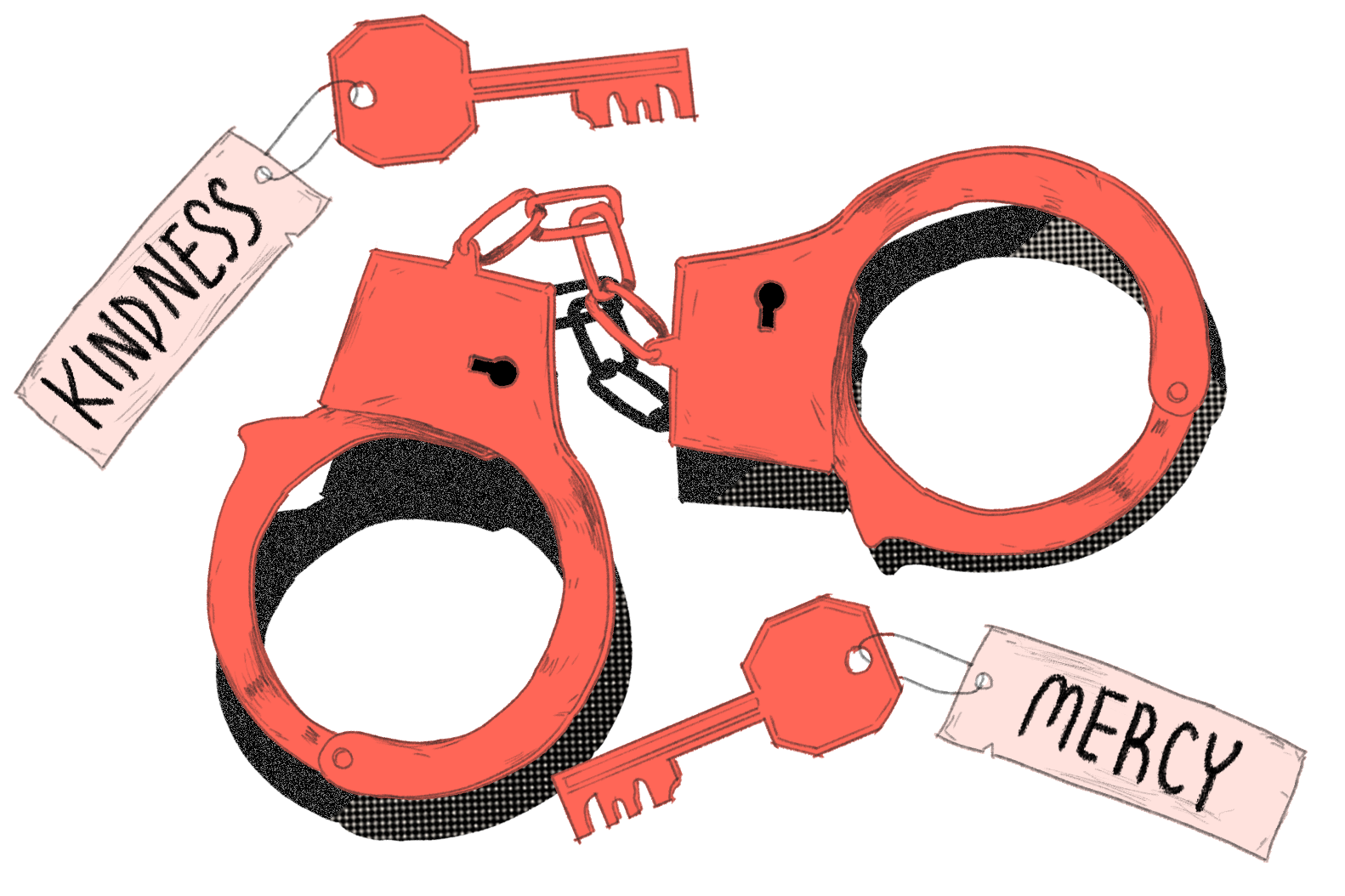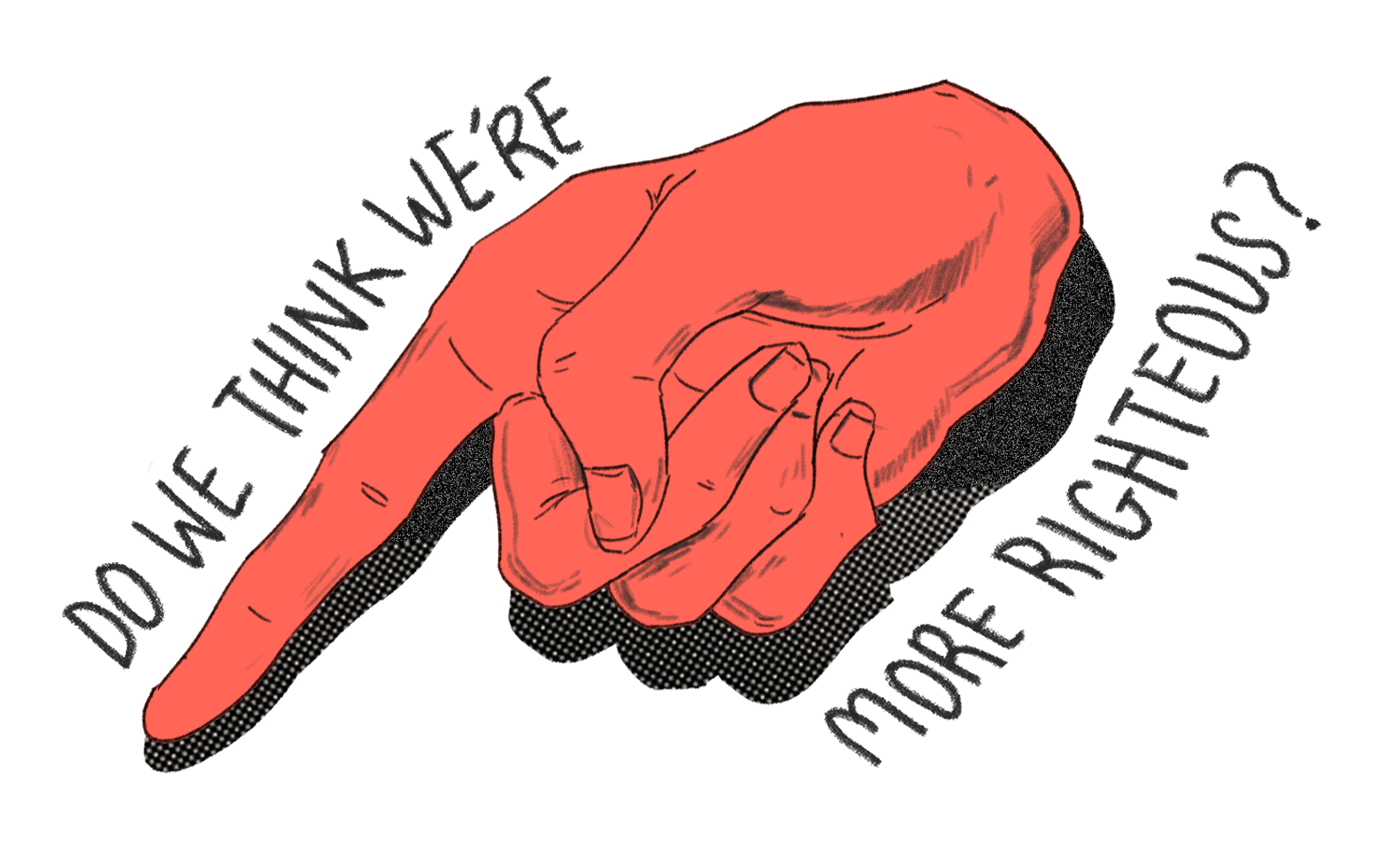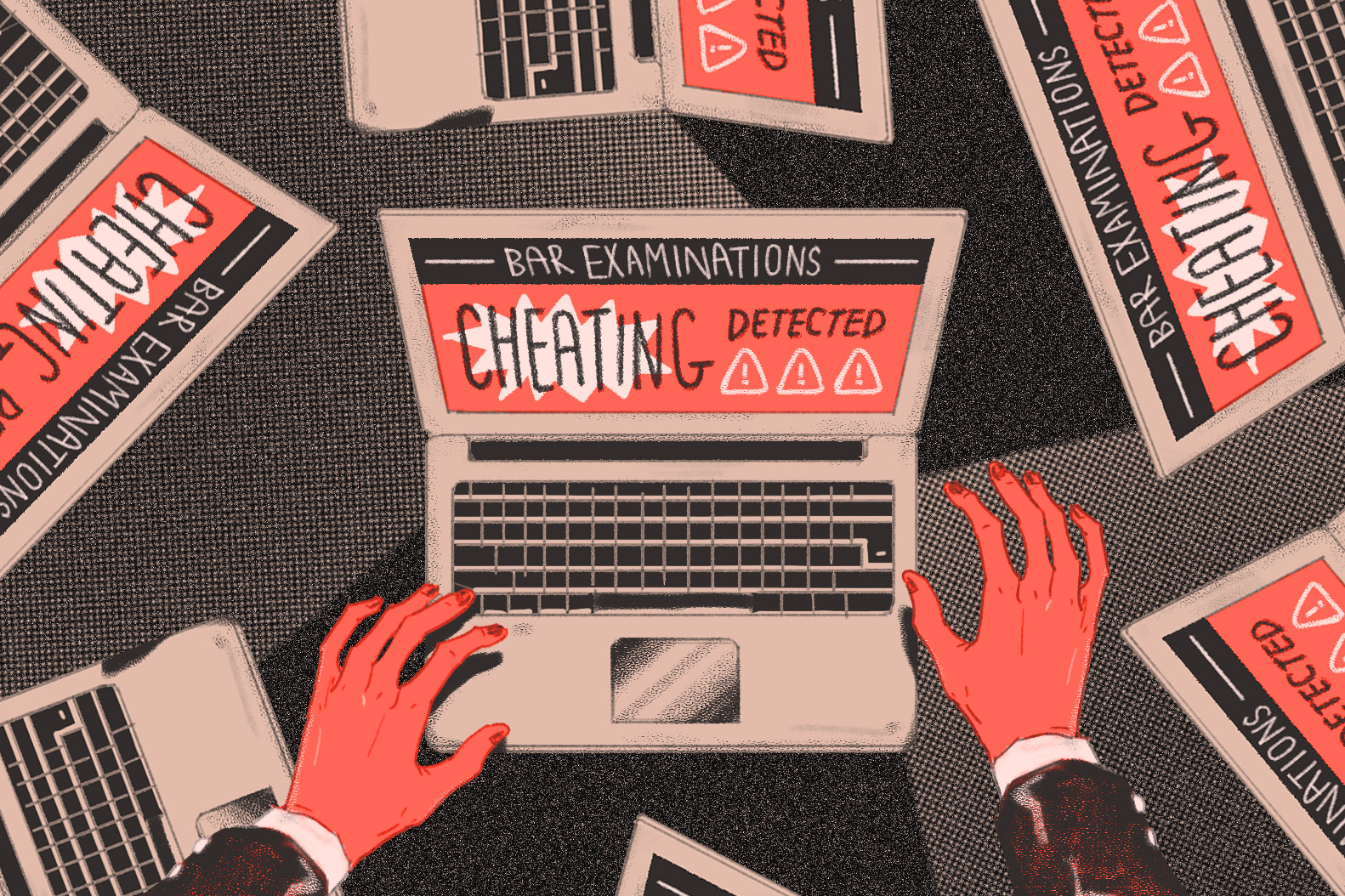Following the news that six trainee lawyers (which later grew to 11) were found to have cheated in their qualifying Bar examination in 2020, the outrage was palpable.
A brief scroll on my LinkedIn feed showed as much, with many (both lawyers and non-lawyers) expressing views on the issue.
The outrage was exacerbated by two things: First, the judge who heard their applications redacted the six trainees’ names from the public record to protect their identities*. Second, just a week earlier, a senior lawyer was suspended from practising law for three years for a dishonesty-related complaint.
These two unrelated incidents have thrown the issue of honesty in the legal profession into the spotlight.
How should we respond to incidents within a profession that prides itself on integrity and the upholding of justice? And what can a Christian response to this news look like?

Micah 6:8 came to mind as I was reflecting on this issue. And I dare say that many Christians, especially lawyers, would know this verse by heart.
Here, I list out three common reactions I’ve seen or heard from people regarding this issue, using this verse as a framework.
Do justice
The first reaction is that these trainees were simply that: trainees.
Accordingly, so the reasoning goes, their infraction was not as serious as if they were practising lawyers.
No one was hurt, and they eventually retook the required exams and passed, showing that they did not need to cheat in the first place.
My view: Let us not provide excuses for their dishonesty. Where wrongdoing is discovered, justice must be done.
It is thus natural, and even good, for us to demand that some consequence be meted out against the trainees. There is simply no basis for us to excuse their behaviour, regardless of their circumstances.

In some sense, this has already been done. For a law student to eventually practise as a lawyer, they must first be admitted as an advocate and solicitor in the Supreme Court of Singapore.
By six of them having their applications to be called to the Bar adjourned for at least six months, with no certainty that they will succeed in their applications thereafter, their career prospects have already been damaged, even before it has even started.
Love mercy
On the flip side, the second reaction I’ve seen is that the trainees had gotten off lightly.
To provide context, whenever a lawyer’s dishonesty shows a character defect that renders him/her unfit to remain in the profession, the lawyer will almost invariably be barred from practising.
Therefore, for the trainees to “only” have their applications to practise law be delayed is, in some sense, lenient.
Additionally, the judge who heard their applications had redacted their names from the court records to protect their identities.
To the layman, this appeared to be an act of hypocrisy within the legal profession, as offenders are frequently named in the media.
Of course, whether the trainees’ “punishment” was sufficiently severe is an open question.
Bearing in mind that these were not criminal proceedings, neither were they lawyers that are liable for disciplinary proceedings by the Law Society, any comparisons with such cases are limited in value.
However, in my mind, what is important is this: Regardless of the outcome, it is important for us as a society to provide a pathway for those who have erred back into societal acceptance.
This applies not just for these trainees, but also other offenders.

One of the first few questions I’m asked when a client is scheduled to appear in court for a criminal offence is whether the media will be there, whether their names will be published and whether their photographs will be taken. This is a real concern that many offenders face.
This includes offenders under the age of 21 who are eventually ordered to undergo probation. Even though a probation order leaves no criminal record once it is completed, the “record” of their past misdeeds live on perpetually on the internet.
Having their offences published in the media invariably makes it more difficult for ex-offenders to find employment thereafter. A brief Google search of their names will alert employers to their previous offences, even if they need not be declared as a criminal record.
After justice is meted out, we should be quick to extend the hand of mercy and kindness.
To thus see a judge show mercy and kindness to the trainees by protecting their identities (and thus their reputations/careers) — while surprising — gives me hope that this approach can be expanded to include young offenders for whom rehabilitation is the dominant sentencing principle.
Rehabilitation is, and should be, an integral part of our justice system.
After justice is meted out, we should be quick to extend the hand of mercy and kindness, to help restore those who have fallen back into the community.
Walk humbly
The third common refrain I’ve heard goes along the lines of “who on earth would think of cheating in a professional exam, let alone one that has an ethics and professional responsibility module in it?”.
The underlying sentiment in such a statement is this: That we, if placed in a similar position, would never have committed such an error.
This reminds me of the parable in Luke 18:9-14.
In their respective prayers, the Pharisee boasted about his righteousness, thanking God that he was not a sinner like the tax collector, while the tax collector prayed for God to be merciful on him, a sinner.
Jesus told this parable to “some who trusted in themselves that they were righteous, and treated others with contempt” (Luke 18:9).
When concluding, Jesus taught that “everyone who exalts himself will be humbled, but the one who humbles himself will be exalted” (Luke 18:14).

In applying the message of this parable to this situation, we need to ask ourselves is this: In condemning those who were caught cheating in a professional examination, are we also boasting in our own righteousness?
It is easy for us to think that we would never have committed the same error as the trainees.
However, as Jesus himself once said to a group of Pharisees and teachers of the law waiting to stone a woman caught in adultery: “Let any of you who is without sin be the first to throw a stone at her.” (John 8:7)
Have we ourselves not sinned and fallen short of the glory of the Lord (Romans 3:23)?
Each time we see the sins of others exposed, we need to take stock of our own lives and pray for grace that we may resist the urge to sin.
Looking to the Cross
In conclusion, the news that these trainees were found to have cheated in their Bar examination is disheartening and concerning for me as lawyer.
Cheating, especially in a profession that is built on the honesty and integrity of its members, cannot be condoned.
Justice must be meted out, and consequences must follow to ensure that the profession continues to be trusted by society.
Yet, equally important is for us to extend mercy and grace to these trainees. Rehabilitation and restoration are integral parts of our justice system. It can (and should) be extended to them.
Of course, my hope is that they have learnt their lesson, cherish the grace that has been extended to them and work hard to regain the profession’s trust.
In many ways, isn’t this the message of the Cross? We ought to bear the consequences of our sin, but “God demonstrates his own love for us in this: While we were still sinners, Christ died for us.” (Romans 5:8)
God, in his great mercy and grace, restored us back into a right relationship with Him through Jesus’ sacrifice for us on the Cross. In response, we live wholeheartedly for Him, loving others as He first loved us.
If we find ourselves unable to extend grace and mercy to those who have sinned, we need only remember the parable Jesus told in Matthew 18:21-35.
Like the servant, we have had our debt forgiven. Should we also not show the same forgiveness to others?
We thus need to resist the urge to simply throw condemnation in their direction, without examining our own conduct and morals.
If we did so honestly, we will likely find that we too are in need of God’s mercy and kindness. We will then be able to extend that same mercy and kindness to these trainees.
*Update on 27 April: The names of the six trainee lawyers have now been disclosed following tremendous public interest in the matter.
Explaining his reversal of decision, the High Court judge said that “sometimes, redemption cannot be claimed behind the mask of anonymity” and that he now believes having “to face the publicity rather than hide from it” would be better in helping one to develop fortitude.
- Why is it important to live with integrity?
- In what areas do you need God’s grace and mercy?
- Is there someone you need to extend mercy and kindness to today?









